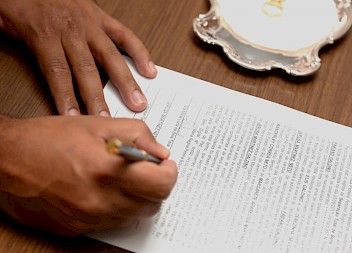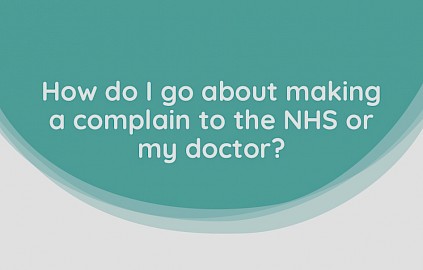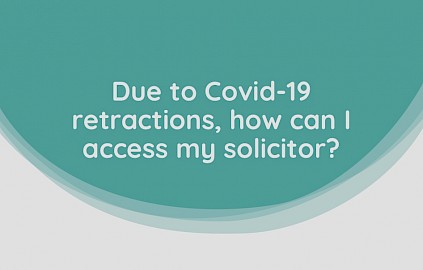Each year in the UK, approximately 100,000 people are admitted to hospital with strokes, with one in seven admissions leading to the tragic death of the patient. Survivors are faced with numerous complications, from reduced cognitive function impacting their speech and vision to paralysis that can temporarily or permanently impact the quality of their life.
When someone is having a stroke, time is of the essence, with each minute that passes impacting their chance of recovery and survival. For this reason, any delays in getting a patient to a hospital or establishing their diagnosis could provide grounds for a stroke medical negligence claim.
What Are Stroke Compensation Claims?
Strokes occur when the blood supply to the brain is compromised, causing damage to brain cells as they become deprived of oxygen. This damage impairs brain function, leading to numbness in the face and limbs, issues with speech and movement, and causing paralysis in the most severe cases.
There are three different types of stroke, including:
- Ischaemic strokes – The most common type of stroke, these are caused by blockages in the arteries which prevent the flow of oxygenated blood towards the brain.
- Haemorrhagic strokes – This type of stroke is caused by internal bleeding in the blood vessels leading to the brain.
- Transient ischaemic attacks (TIAs) – Sometimes called a ‘mini-stroke’, TIAs are caused by temporary blockages in the blood supply, leading to partial impairment of brain function. While the symptoms of TIAs typically disappear within 24 hours of an attack, they can be a sign that a major stroke is going to follow and should still be treated as a medical emergency.
The reasons for strokes may be different, but there are several common signs that someone could be having a stroke. The NHS created the FAST mnemonic to help bystanders identify a potential stroke:
- FACE – Can the person smile? Has their mouth or eye drooped?
- ARMS – Can the person raise both arms?
- SPEECH – Can the person speak clearly and understand what you say?
- TIME – Call 999 immediately if you notice any of these signs.
Providing rapid medical treatment is critical as it can significantly reduce the damage to their brain cells and increase their chance of survival and recovery. Neurologist Camilo R. Gomez coined the term ‘Time is Brain’ in 1993 to highlight the correlation between the expediency of treatment and the recovery of brain damage, while subsequent studies have found that approximately 1.9 million brain cells die each minute when a stroke goes untreated.
For this reason, the government has issued national guidelines on the timescales of diagnosis and treatment in stroke cases. Any deviation from these guidelines or actions by healthcare providers that result in delayed diagnosis or treatment could be seen as grounds to make a stroke compensation claim.
Examples of Stroke Medical Negligence
From your first point of contact with emergency services, through to the aftercare prescribed to you or your loved one during recovery, there are numerous instances when medical negligence can impact stroke cases. These include:
- A GP or hospital doctor failed to diagnose TIA symptoms, missing their opportunity to prescribe blood-thinning medication, such as aspirin.
- A GP or hospital doctor did not conduct an emergency assessment after the patient presented any of the signs referred to under the FAST test.
- The patient was not offered thrombolysis treatment despite qualifying for it.
- The patient was not referred to a specialist unit for thrombolysis.
- A GP or hospital doctor failed to diagnose stroke symptoms, delaying admittance to an acute stroke unit.
- A specialist doctor delayed or failed to perform investigations into the stroke, such as blood pressure tests, ECGs, blood tests and CT and MRI scans.
- The patient did not receive reasonable care after attending the hospital for a stroke. Medical Solicitors have recently assisted with a case where a lady was admitted for overnight observation after recovering from a TIA, then suffered a major stroke after staff told her to go back to sleep when she reported her symptoms.
- The patient suffered a stroke due to taking the contraceptive pill. Our Director, Caroline Moore, recovered a six-figure sum for a 41-year-old lady who was left with permanent disabilities after her GP failed to take her off the contraceptive pill when she first exhibited signs of a stroke at 36 years of age.
- The patient received incorrect advice or medication to assist with their rehabilitation and recovery.
- Failure of a GP to advise on managing the risk of stroke, e.g. by making lifestyle changes, monitoring and managing high blood pressure, treating diabetes, addressing high cholesterol, etc.
How to Make Stroke Negligence Claims
If you believe that misdiagnosis, negligent treatment or substandard aftercare caused avoidable harm to you or a loved one following a stroke, we urge you to seek specialist legal advice to discuss your stroke compensation claim. Following an initial consultation with your solicitor, they will be able to ascertain whether there was a breach of duty during the course of the stroke treatment and can begin to gather evidence in support of your claim. This could include:
- Medical records: By collecting copies of clinical notes from appointments, your admission to hospital, test results and your discharge summary from the acute stroke unit, your solicitor can assemble a timeline of your care, making it easier to identify when medical negligence occurred in your stroke case.
- Independent medical opinion: At Medical Solicitors, we routinely request reviews from third-party medical experts to assess the standard of care our clients received. These experts are able to compare your care with the standard expected of medical professionals working within neurology and recognise where it falls below this standard.
- Financial losses: Being subject to stroke negligence can impact your financial wellbeing as much as your physical and mental health. From missing work while you were in hospital or in recovery, to adapting your home to accommodate your temporary or permanent loss of mobility, evidence of your financial losses subsequent to your negligent care could contribute to the amount of stroke compensation you receive.
Compensation for Stroke Misdiagnosis and Medical Negligence
There are many factors that the court considers when calculating the amount of compensation stroke victims should be awarded for their suffering, from the physical impact that delays and misdiagnosis had on your quality of life, to the financial losses incurred by you and your family. These include:
- The physical harm you endured following your stroke medical negligence, such as an extended recovery period or permanent paralysis.
- The emotional suffering experienced due to the impact your stroke had on your quality of life.
- Financial losses from missing work, losing your job or being unable to find future employment following your stroke.
- Financial losses incurred by family or friends who have left their jobs to become your full-time carer.
- The cost of specialist medical equipment, home adaptations or employing private carers.
- The cost of private rehabilitation appointments, prescriptions and travel expenses to and from these appointments.
- Funeral costs when stroke medical negligence resulted in death.
Time Limits for Stroke Compensation Claims
As with other medical negligence claims, the time limit for bringing stroke claims against healthcare providers is three years from the negligent act, or three years from the time the negligence was brought to your attention. While courts tend to be strict about these timeframes, you may still be able to bring a claim outside the three-year limit if it is on behalf of someone else, such as a person without the mental capacity to make their own stroke compensation claim.
Trust Medical Solicitors with Your Stroke Compensation Claim
With more than 30 years of experience assisting clients with their medical and surgical negligence claims, Medical Solicitors has established a track record of winning substantial settlements while holding healthcare providers accountable for their negligent actions. Working closely with patients, families and independent medical experts, we are dedicated to getting the results our clients deserve while making changes to medical institutions across the UK.
Losing a loved one or your own mobility to a stroke can impact your finances as much as your physical and mental health, so we appreciate that you might be concerned about the cost of bringing your stroke negligence claim. In light of this, we offer ‘No Win, No Fee’ agreements for all our stroke compensation cases, subject to an initial merits assessment, so you can have the reassurance of standing to lose nothing in speaking to us.
For more information about our Conditional Fee Agreements, or for more insights into what constitutes stroke medical negligence and how compensation amounts are calculated, please contact our team of specialist lawyers today.











